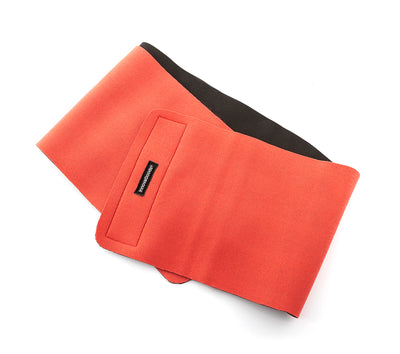Work + Vacation: How Workations Transform Your Productivity
Could the people from the past centuries just imagine that it’d be possible to work from any place in the world one day? They were attached to their workplaces without any “flexible hours,” “remote work,” and “retreat” options. Some may say it made them more productive. But were they happier? Both claims are pretty controversial. Working set hours for years without the slightest chance to change the surroundings doesn’t sound like the rosy picture of life. So let’s be glad that most of us have the opportunity now to be flexible.
Still, are we getting enough from this flexibility? Pandemic forced us to take full advantage of it and uncovered some unexpected sides of working remotely. As of, 55% of employees claim they want to work at least three days remotely. Luckily for employers, remote work productivity in many cases is higher than productivity at the office.
So it’s clear that remote work is not just a temporary trend but a work option that stays with us forever. But what if we go even further and say that you can work and enjoy all the perks of traveling and relax simultaneously? That’s what workations are about, and in this article, we’re uncovering their benefits and pitfalls, so dive in!

What is workation?
Since this term is relatively new, not many people know about workations. There is nothing complex about workations - its meaning exactly matches its name. Taking a written means working while having a vacation. And it’s up to you which type of vacation you would mix with work, be it traveling around the globe, lying on the beach, or just visiting the city next door.
When on workation, you divide your time that way, so you have your hours to work, and then you’re off to whatever adventure awaits you outside. The sweetest part here is that you don’t need to save money for months ahead to visit the places of your dreams. Workation is way lighter on your wallet than a regular vacation since you still get to earn your money.
Remote work vs. workation: what’s the difference?
At first, you may think that workation is no different from remote work - you still need to work and can do that from any place on Earth. However, there’s a huge difference between them, especially in terms of your perception. When you’re working remotely, in most cases, that means you’re working from home or the nearest coworking. So you don’t leave your familiar environment and remain chained to the routines.
In turn, workation is a complete change of your surrounding. New impressions and adventures are all around you from the first step of planning until you get home. It’s your chance to make precious memories and expand the boundaries of your worldview. What’s also essential, workation truly feels more restful and inspiring than working in your usual way. It’s a perfect combo of rest and work that doesn’t let you get bored or exhausted. Now let’s look closer at the exact benefits of workation for your productivity, motivation, and life outlook.
A brief look into statistics
Even though workations is a relatively new trend, it has become wildly popular. Let’s take a look at stats:
- 37% achievers are already planning to travel to another country and take a workation
- 80% of working adults would like to add a few weeks of workation to their holidays
- 46% of companies plan to support location-independent remote work after the pandemic.
Workation: How to find the right balance
The main idea of the workation is to change the usual picture and organize work and rest so that the work process does not suffer and you still manage to rest. Because if you come to another place, work full-time, and stay at home in the evening, this is just remote work. And if you come to another place and rest instead of work, this is a vacation.Combining work and leisure does not have to be 50% to 50%. You can work half a day and spend the rest of your time exploring the new city. You can also work a full day and relax in the evenings and on weekends. It depends on:
- how attached you are to the team's work
- whether you can adjust the schedule for your needs
- how you agreed with the management.
You can go on a workation alone or with your partner/friends. Your work schedules must coincide with your workation companions. Traveling with friends who are on vacation isn’t the best idea. You will feel constant pressure because they’re resting, and you’re working. Additional temptations will be distracting, so your efficiency will be at rock bottom.
Availability of workation options also depends on the type of your company and position. Although the pandemic has shown that we can do 90% of work online, some businesses still need your presence in the office. Still, if you can work from home and have decent productivity, you will most likely be effective anywhere else.Now let’s look closer at the exact benefits of workation for your productivity, motivation, and life outlook.
Perks of taking a workation
Workation benefits go deeper than just allowing you to see the new places (but that counts too). It affects your intelligence, work efficiency, social skills and contributes to your career growth. Warning: after reading about its benefits, you can feel an irresistible urge to plan your workation here and now.

Workations make you smarter
Being attached to one place, be it your office or home, won’t allow you to get new impressions. That means you’re just locked in familiar situations, and your brain doesn’t get enough “fuel” to develop further. Yeah, you’ve got it right - the brain perceives new experiences as an opportunity to grow and build new neuron connections.
Neuropsychologists claim that every new place you visit delivers unique experiences to your brain. While processing them, it develops, just like the muscles after a good workout. Taking a vacation means you’re going to meet new people, discover new cultures, try unfamiliar dishes, and visit places you’ve never seen before. Different parts of your brain react to these experiences, making it more flexible and revitalizing it. So if you have an option to stop chaining yourself to one place, what stops you now from discovering the unknown?

Workations boost your mood & motivation
Whether you’re working remotely or sitting in the office, your surrounding doesn’t change, which means you’re living in a routine. And let’s be honest, even if sometimes routines help you focus and don’t waste time on distractions, they’re mostly boring. Scientists claim that people are prone to feel boredom, often more likely to have mental problems, and have higher chances of developing depression or anxiety.
What’s more, boredom may lower your work engagement! A study says too monotonous work conditions impair the way you execute your tasks, which, in turn, isn’t the best thing for your career motivation. However, workations are the ultimate solution when boredom has won you over. It allows you to get off the usual flow of life and get unattainable emotions if you just stay put.
Change of scenery also gives a powerful creativity boost since your point of view may vary depending on the circumstances. So if you crave a strike of inspiration, now you know the way to reach it.

Workations helps you reach new career heights and keep up with the deadlines
You may know this feeling when you get back after an extended vacation and feel dread just by thinking about work. At some point, you could seriously think about quitting your job because of instant work stress appearing out of the blue. Comebacks after vacations are especially dreadful if you were off for a long time, like a few weeks or a month. And that works both ways because doing nothing for a long time can be just as depressing.
Scientists have found that the reason why you may feel so bad after coming back from your vacation is an instant shift between two life modes. Imagine, a few days ago, you were enjoying great food, beautiful landscapes, and endless fun with your friends or family. On the contrary, now you need to delve into work processes and busy life pace. It will take you some time just to get used to your work routine again, not even mentioning that you need to develop a productive mood from scratch.
When getting back from a workation, you’ll never get to experience that depressed and unproductive mood. Due to its convenient approach, which allows you to combine work and leisure, you keep all work processes under your radar and get involved in them. So when you get back to your office, you don’t need to feel the gaps with the news and updates you could have missed on a full-time vacation. Still, you get all the perks of traveling and getting new impressions. Isn’t that a perfect combo?

Checklist to prepare yourself for a productive workation
With all the sweet perks of workations, you can also experience some downsides (okay, nothing’s ever perfect). They’re mostly related to organizational matters when you need to make sure you’ll be able to work from the place you’re going to visit.
You will have to take care of many things in advance. Not just to rent a house, but also to find out how high-quality and fast the Internet is there. Think about what you will do if it suddenly turns off - work from a cafe nearby, create a hot spot on your mobile, and so on.
It is better to take a day off on the day of arrival, or better for a couple of days - this will be an opportunity to get acquainted with the place, relax after a flight or ride and start working with renewed vigor. By the way, some hotels worldwide have some accommodation options for combining work and leisure. They equip rooms to be suitable for working needs: a comfortable workplace, additional lighting, and high-speed WI-Fi.
It’s easy to miss something essential, that’s why we created a checklist for you to prepare successfully for a productive workation. So follow these steps, and you’ll manage to plan everything flawlessly.
- Discuss it with your boss and team. If you’re not a freelancer, you surely need to warn your colleagues and your boss about the workation plans. First, it’s better to get permission from your boss, then let your team know which days or hours you’ll be available to work and communicate. That will help you avoid any misunderstandings and not disrupt any plans within your team. Plus, getting to your destination and setting up your workplace there may take extra time, so make sure everyone’s aware of that.
- Choose a country and city you’d like to visit. If it’s your first workation, try to choose the most convenient places you’d like to visit. So the city you choose shouldn’t be too expensive; also it’s better to pay attention to the language barrier. Also, if you’re not sure you want to go far, you can always choose another city in your country or just pick a nice place surrounded by nature near your hometown.
- Book tickets and an apartment ahead. When you organize a workation, it’s better to avoid any spontaneity and leave nothing to chance. When you decide on the dates of a workout, book your round-trip tickets and apartment. If you can’t rent a car, try finding accommodation near the city center or the sightseeing you’d like to visit.
- Ensure you’ll have a stable Wi-Fi connection. Probably the most important thing when preparing for a workation is to verify if the place you’ll be living in has a good Wi-Fi connection. It’s better to ask the landlord once more about it than to find out that Wi-Fi is terrible right when you get there.
- Сreate a schedule for work and leisure. If you don’t want to spend all the workation behind the desk, create an approximate plan of distributing your time. Write down which days you’d like to be completely free to discover new places and get impressions and when you want to focus more on work.
- Have a clear work plan. If you want to stay productive and not skip any deadlines, write a clear work plan on what would you like to accomplish during your workation. It will help you stick to your actual tasks, avoid procrastination, and evaluate your results later. Then, you can compare your work results during the regular work week and workation.
Resources:
- It’s time to reimagine where and how work will get done (2021)
- How traveling changes your brain? (2019)
- What happens in the brain when we are bored? (2019)
- It’s so boring – or is it? Examining the role of mindfulness for work performance and attitudes in monotonous jobs (2021)
- Why it's so hard to come back from vacation — and how to do it better (2020)








